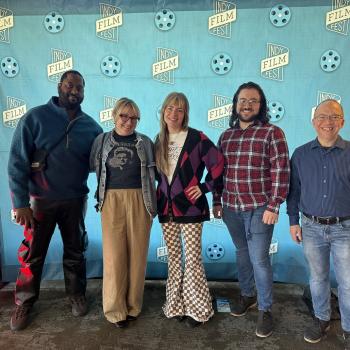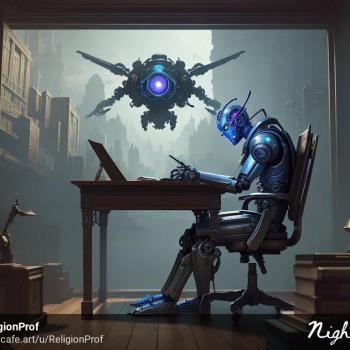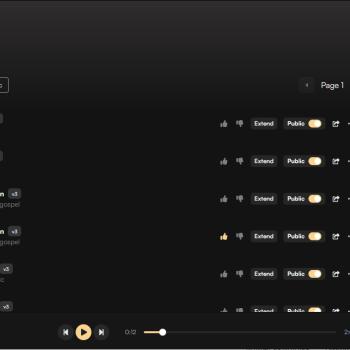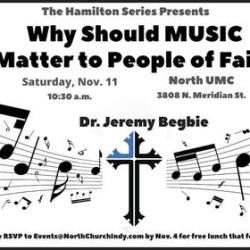I am probably not the only person to watch Dreamin’ Wild who was in a band (actually, several) when they were younger, who wrote songs (I still do), who at one point considered pursuing music as a subject of study, taking the chance on a dream that had little chance of coming to fruition. As an avid music listener as well as amateur music-maker, I love that the internet has allowed me to discover music that I otherwise would not have. I make a point of listening to obscure composers and artists. There are more people making music worth listening to than any of us will be connected with and be given the opportunity to hear.
That’s why I jumped at the chance to get an advance screening of Dreamin’ Wild and blog about the movie in connection with its release. It is a movie based on a true story (and as I think holds true for biopics in general, in this blog post I talk about the film without feeling the need to offer spoiler warnings since it is about real life events). From the moment the movie began to its end, I knew I had made the right choice seize the opportunity to see it even before its theatrical release. The movie opens with a quote:
“Dreams come true in time…occasionally in 4/4 time.”
– Anonymous
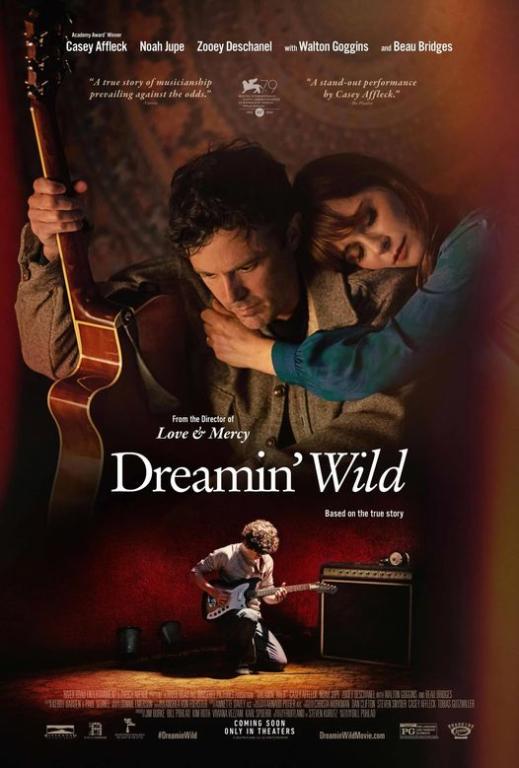 The movie then quickly clues us in to the fact that we will be encountering the stories of the main characters both recently and around 50 years ago. (If you have trouble coping with the fact that by 50 years ago I am referring to the 1970s, this movie is for you.) The opening scenes give us a glimpse of the times and timelines to which the movie will take us. We go quickly from songwriting in a shed that has been transformed into a studio, to playing before a crowd, to awaking from the dream as an adult besides one’s wife and and then taking the kids to school. This is our introduction to the main character, Donnie Emerson, who in the present is running a struggling music studio and plays music at weddings with his wife. (As a child of that era I liked that the song they performed was Hall & Oates’ “Out of Touch.”) We eventually get a specific indicator of a moment in history, late summer 2011, when Donnie gets a call from his brother Joe. Their album had been purchased on a whim by a vinyl collector who was impressed and shared his find. The brothers and their family were completely unaware of the online buzz about the album that they had produced but which had gone nowhere. Until some 30 years later when it suddenly got attention, with Pitchfork calling it “a godlike symphony to teenhood.”
The movie then quickly clues us in to the fact that we will be encountering the stories of the main characters both recently and around 50 years ago. (If you have trouble coping with the fact that by 50 years ago I am referring to the 1970s, this movie is for you.) The opening scenes give us a glimpse of the times and timelines to which the movie will take us. We go quickly from songwriting in a shed that has been transformed into a studio, to playing before a crowd, to awaking from the dream as an adult besides one’s wife and and then taking the kids to school. This is our introduction to the main character, Donnie Emerson, who in the present is running a struggling music studio and plays music at weddings with his wife. (As a child of that era I liked that the song they performed was Hall & Oates’ “Out of Touch.”) We eventually get a specific indicator of a moment in history, late summer 2011, when Donnie gets a call from his brother Joe. Their album had been purchased on a whim by a vinyl collector who was impressed and shared his find. The brothers and their family were completely unaware of the online buzz about the album that they had produced but which had gone nowhere. Until some 30 years later when it suddenly got attention, with Pitchfork calling it “a godlike symphony to teenhood.”
Although the musical storyline sold me, I could not ignore the fact that there was the prospect of it also being of interest to the adult me whose profession is not musician but religious studies scholar. Of course, lots of movies promise that but not all deliver. This one does, in various ways. The older brother Joe, who is less the musical dreamer and yet is integral to everything nonetheless, says that going to the practice place their dad built after working in the fields on their farm in Washington state was “like going to church.” Conventional religion as well as implicit religion are both woven into the real life story as well as the movie that dramatizes.
If you’ve completely missed out on this story, I have some videos with both the trailer for the movie and a real life featurette below. But for not, just listen to what these brothers made on their own in the 1970s in the studio their father built for them, taking a loan that would eventually cost him most of his farm in order to buy his sons very expensive instruments and recording equipment. The story of supportive family is really what the movie is about, more than anything else. Just listen, especially to track #3, “Baby.”
I think you will agree that the excitement at the album’s rediscovery is merited and completely understandable. If this music didn’t have this amazing backstory it would still be something special.
Now, on with the movie. The album comes to the attention of the record label Light in the Attic whose whole focus is finding music that didn’t get the attention it deserved on first release and giving it a second chance. As someone with a passion for music who could empathize fully with Donnie’s difficulty in processing what was happening, these words from the movie sum it up: “You make an album when you’re 16 years old and nobody likes it. Then 30 years later the New York Times…” They were happy then, and it went nowhere. He is not sure what to do with the sudden revival of interest and of his dream 30 years later.
The fact that this all happens in a setting that might seem unpromising, despite its natural beauty, should not be missed. These were farmers (in Fruitland, Washington). Donnie shares that they got a radio in the tractor that they bought when Donnie was 12, and that was his first real chance to listen to music on the radio.
Joe shares, “My dad is a man of faith. He believes in his family. He believes in Donnie.” He mentions that his brother Donnie is a complicated guy, a genius, but that all of this, including having a dream that he continued to pursue yet that had been frustratingly unfulfilled was not easy for him.
Their father, Don Sr., asked his sons about their interest in music, not to discourage them but to encourage them to pursue it if they were serious and were going to commit to doing it. That would mean doing their own songs, that is, the songs Donnie was writing. The father, played by Beau Bridges, tells them, “You have a gift.” He believes in his sons, and for the general audience that might be the thing that makes the movie practically relevant rather than just emotionally uplifting. Is a father right to sell his farm land to invest in his son’s dream? Would it have been the right decision even if the story did not have the remarkable belated happy ending that it did? Is it success that makes the dream worth pursuing, or is the passion itself sufficient justification? In the movie we see them get their first royalty check on the re-released album, decades after they recorded it, time during which the family’s 1700 acre farm diminished down to around 65 due to bank foreclosure.
We hear a lot more of their story and get to know the characters more, and I won’t go into lots of detail. Eventually the re-release means a performance at a venue that Donnie and his wife had long dreamed of performing at, the Show Box in Seattle. Once again the fact that religion is part of their lives in a way that is natural and taken for granted comes through. They pray in the dressing room before performing. It is just something we get the sense that it is natural for them to do, giving thanks for that moment and for rock and roll in a way that plenty of religious and secular people might not do, and certainly not instinctively. I had the opportunity to interview Donnie and Nancy Emerson and they mentioned this as simply an expression of who they are.
As a musician who is overly critical and self-conscious, as I suspect we all tend to be, I wasn’t surprised that afterwards Donnie said their performance was crap, a disaster. This is just the beginning of a long screed in which he gives vent to his frustrations. What was he frustrated about? His brother had not been constantly practicing over the years the way he had, and his time-keeping was less than perfect. Donnie says, among other things, “It’s not just fun for me… To do what everyone wants is not fun for me…It’s my music…I’ve been working at it…”
At one point Donnie had a chance to go to LA, an opportunity that may or may not have been fully legit, but either way costs the family money they never recoop. When the father Don St. goes to bank to take an additional loan against the farm, the bank manager tries to talk him out of it. But he won’t be persuaded, because his aim is not to make money. Thus he says, “It’s not a gamble it’s an investment.” Investing in family is a major theme.
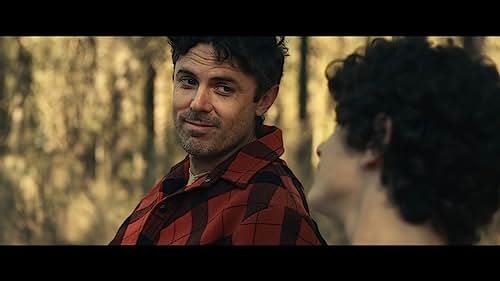 One of my favorite scenes visually is when older present day Donnie goes and sits where he used to when he was younger. We get to see young and old Donnie sitting side by side, and older Donnie starting to ask, “Can I ask you a question?” The arrival of his father deprives him of the chance to pose the question, but leads to an even more essential catharsis. Donnie shares that, “When we were kids the music seemed to flow so easy…Never like that again though.” Donnie talks about running away from the guilt and shame he felt because his father had lost so much of his farm. The fact that his father never stopped believing in him made him feel that much worse rather than better. Don Sr. then shares from his perspective that once he awoke in the night, usually being a deep sleeper, and he heard his son’s music drifting all the way from their practice place to their home. He says that he would give up all the land for his son. “You play what you want. I just want you to play.”
One of my favorite scenes visually is when older present day Donnie goes and sits where he used to when he was younger. We get to see young and old Donnie sitting side by side, and older Donnie starting to ask, “Can I ask you a question?” The arrival of his father deprives him of the chance to pose the question, but leads to an even more essential catharsis. Donnie shares that, “When we were kids the music seemed to flow so easy…Never like that again though.” Donnie talks about running away from the guilt and shame he felt because his father had lost so much of his farm. The fact that his father never stopped believing in him made him feel that much worse rather than better. Don Sr. then shares from his perspective that once he awoke in the night, usually being a deep sleeper, and he heard his son’s music drifting all the way from their practice place to their home. He says that he would give up all the land for his son. “You play what you want. I just want you to play.”
There is a lot more that could be said. Lots more rich detail. Great music. A heartwarming and inspiring story based on actual real life people and events. As a final treat we get a bit of a performance by the actual real life brothers at end, instead of the actors (Casey Affleck and Walton Goggins) who had done such a good job of depicting them. I was so moved by that surprise at the end, and yet it doesn’t seem like the sort of thing that requires a spoiler warning (if you disagree, I’m sorry!) I’m so glad I had the chance to talk to Donnie and Nancy Emerson and to tell them how much that ending and the movie as a whole touched me.
What else can I say? If you’re a musician or once wanted to be one, or just a music-lover, if you’re a parent, a dreamer, or just someone who could do with an uplifting true story, watch this movie.
By the way, if you haven’t been listening to the whole album while reading this, go back and listen to it. If you don’t have time for the whole thing, at least listen to “Dream Full of Dreams” from the album. Then you can turn to these other videos. Here’s the movie trailer:
Here is my conversation with Donnie and Nancy Emerson:
And here’s another video about the real people depicted in the film.
Once you watch it, come back and tell me what you thought of it!




